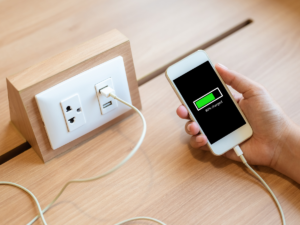
Be Careful Charging Phones and Other Devices Airport Charging Stations, FBI Warns
If you’re someone who frequently travels by air, you’re probably familiar with public USB charging stations at airports. These stations, which are typically located in waiting areas and at boarding gates, allow passengers to charge their mobile devices before they board their flights. However, the FBI recently issued a warning to the public about the risks associated with using these public USB charging stations.
The FBI warns against using public phone chargers due to a hacking technique known as “juice jacking”. In essence, hackers can hijack public charging stations and use them to transfer malware or extract data from your mobile devices. By plugging your device into a compromised charging station, you risk losing sensitive information such as passwords, contacts, and credit card details.
So, what can you do to protect yourself from juice jacking? The FBI recommends that travelers avoid using public USB charging stations altogether. Instead, they recommend bringing your own charger or using an AC power outlet. If you must use a public charging station, the FBI suggests using a USB data blocker. These small devices are designed to prevent data from being transferred between your device and the charging station.
It’s important to note that the risks associated with juice jacking are not limited to public charging stations at airports. Any public charging station, such as those found in coffee shops, hotels, and conference centers, can potentially be compromised. Therefore, it’s always a good idea to exercise caution when charging your mobile devices in public places.
While public USB charging stations may seem convenient, the risk of juice jacking is very real. To protect your sensitive data, it’s best to avoid using these stations altogether or use a USB data blocker. By taking these precautions, you can enjoy the convenience of charging your devices without worrying about the security of your personal information.
To learn more about protecting your personal information, contact us today.
